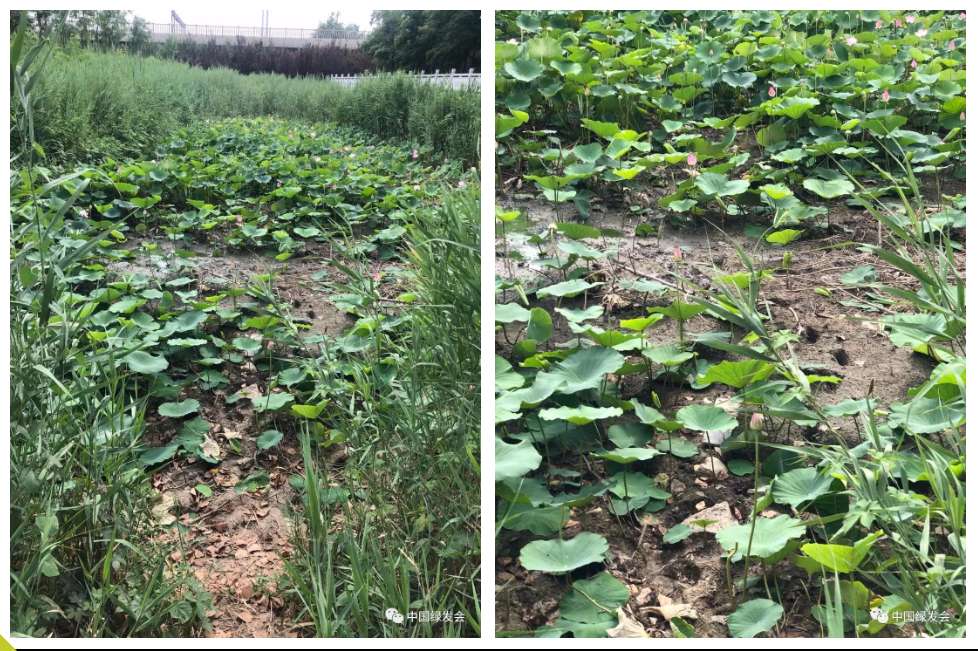Recently, China Biodiversity Conservation and Green Development Foundation (CBCGDF) Research Department received a response from Tianjin volunteers: a pond in Tianjin once photographed Libellula angelina in 2005, 2017 and 2019 has been close to dryness because of no irrigation.
The Libellula angelina, a critically endangered species living in the pond, will also face a serious survival crisis. Volunteers worry that the Libellula angelina in Tianjin will be completely extinct due to this dry up, and Tianjin will once again lose this important and excellent species.
Libellula angelina, also known as bekko tombo, is a species of dragonfly in the family Libellulidae, native to China and Japan. It is under threat by rapid loss of the ponds and other small water bodies it uses as habitat and is currently classified as critically endangered by the IUCN.
The bekko tombo has experienced drastic declines in recent decades, mostly driven by the continuing disappearance of its required breeding habitats, old and stable ponds with vegetated borders. Introduced predators such as the largemouth bass (Micropterus salmoides) have also had an impact. The species has been protected in Japan since 1993, and efforts by various NGOs are ongoing to preserve and reconstitute suitable breeding habitats. Current population is estimated at less than 5,000 individuals, and the species has been classified as critically endangered by the IUCN.
The Libellula angelina has extremely high requirements on the water quality environment and cannot live in streams. It requires ponds or lakes with reeds and other aquatic plants to stand still.
Adults have a short survival period, and the larvae live in water until they can emerge in the next year. And the low-spotted dragon can be found again in the park of Tianjin, indicating that there is a traditional natural ecosystem environment in the area, which is real lucid water.
According to volunteers, there are dozens of Libellula angelina they have observed in this pond alone. Every April or so, they hatch in the pond for about one month of activity, and then begins to grow in the water until the spring of the next year.
Liu Xunan, a CBCGDF volunteer and dragonfly enthusiast, believes: "If the pond is dry now, the Libellula angelina larvae are extremely dangerous."
The Libellula angelina is a rare species in Tianjin and usually spawns in ponds. In fact, since last year, volunteers have found that the water level of this pond has been declining, especially this year.
Volunteers said they have contacted the local authorities, but relevant department said that the area is not under their management, so they have not given water to date.
At present, there is very little water left in this pond. Once it is completely dried up, then for the species of Libellula angelina, its impact is devastating. "It should be time to replenish water now, but it's really hard to say, at least if replenish water now, there should be a small part that can survive." The volunteer said.
In addition, this pond is the only place in Tianjin that has discovered migrant hawker (Aeshna mixta). The number of migrant hawkers is very rare in the urban area of Tianjin, and it is decreasing year by year. Large-scale urban construction has filled the surrounding habitats where small water ponds, dragonflies and other insects depend, and the ecological environment has been severely damaged. “If the larvae of the Libellula angelina have hatched, it may be saved, but the larvae of the migrant hawkers are hatched in the beginning of the spring, and they emerged at the end of August of that year. They are all in the growth stage now. If the pond is completely dried, it will really be a matter of extinction. Even so, there is no guarantee that there will be no impact on the population of the Libellula angelina.” Liu Xunan said, “The key problem now is not only the lack of water, but also the formation of small puddles after the lack of water. Fish, shrimp and aquatic insects are gathered in the small puddles, attracting many water birds. If replenish water as soon as possible, the aquatic animals in this pond will be more abundant.”

(Photo credit: Liu Xunan)
Original Chinese article:
http://www.cbcgdf.org/NewsShow/4854/13082.html
By / Yao Jiahui (Intern) Modified / Maggie
https://www.paypal.me/CBCGDFChina
http://www.cbcgdf.org/English/ConfirmDonaTion/0.html


(Please indicate "I read CBCGDF" in the payment notes, thank you!)
